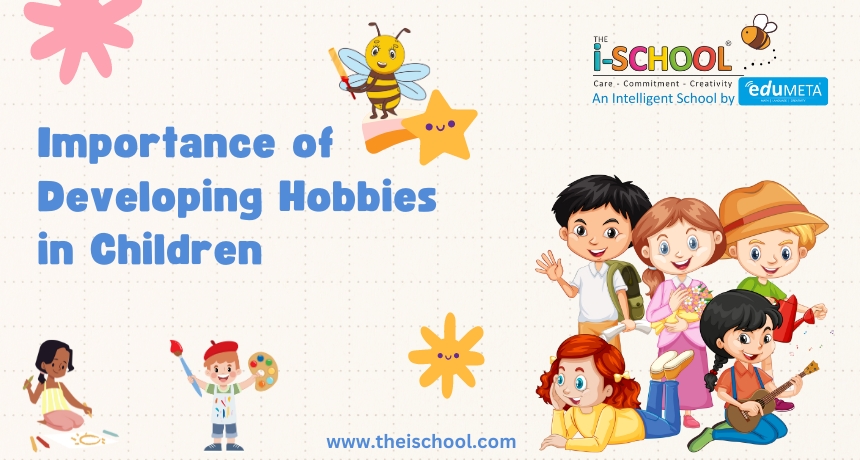Importance of Developing Hobbies in Children

Hobbies are not just fun activities; they play a vital role in children’s development. From painting to playing sports, hobbies help kids explore their interests, develop new skills, and cultivate a lifelong passion for learning. Let’s delve into why hobbies are essential for children’s growth and well-being.
Exploration and Self-Discovery:
Hobbies allow children to explore different interests and discover their talents. Whether it’s trying out musical instruments, experimenting with science projects, or exploring nature through gardening, hobbies provide opportunities for kids to uncover their passions and strengths.
Skill Development:
Engaging in hobbies helps children develop a wide range of skills, from creativity and critical thinking to problem-solving and teamwork. For example, playing a musical instrument enhances fine motor skills and improves concentration, while participating in sports promotes physical fitness and teaches valuable lessons about teamwork and sportsmanship.
Stress Relief and Relaxation:
In today’s fast-paced world, children face various stressors, including school pressure and social challenges. Hobbies serve as a form of stress relief and relaxation, allowing kids to unwind and recharge. Whether it’s painting, reading, or playing outdoors, hobbies provide a much-needed break from academic demands and digital screens.
Boosting Self-Esteem:
Mastering a hobby and seeing progress over time can significantly boost children’s self-esteem and confidence. When kids excel in their chosen activities, whether it’s winning a chess tournament or completing a challenging puzzle, they gain a sense of accomplishment and pride in their abilities.
Fostering Creativity and Imagination:
Hobbies stimulate children’s creativity and imagination, encouraging them to think outside the box and explore new ideas. Whether it’s writing stories, building Lego structures, or creating artwork, hobbies provide a creative outlet for self-expression and innovation.
Building Social Connections:
Participating in hobbies enables children to connect with like-minded peers who share similar interests. Whether it’s joining a sports team, a drama club, or a book club, hobbies provide opportunities for children to make friends, develop social skills, and build meaningful relationships.
Time Management and Discipline:
Engaging in hobbies teaches children valuable lessons in time management and discipline. By balancing schoolwork, extracurricular activities, and hobbies, kids learn how to prioritize tasks, manage their time effectively, and stay organized—a crucial skill set for success in school and beyond.
In conclusion, hobbies play a crucial role in children’s development, offering a wide range of benefits for their physical, mental, and emotional well-being. Whether it’s fostering creativity, building social connections, or promoting self-esteem, hobbies provide valuable opportunities for children to explore their interests, develop new skills, and cultivate a lifelong love for learning. As parents and educators, let’s encourage children to pursue their passions and discover the joy of hobbies.
